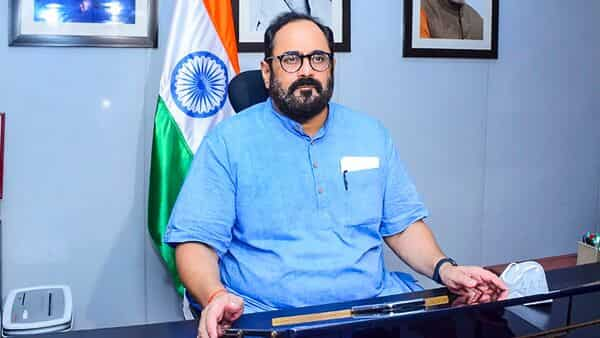[ad_1]
“If the rules need further modification, we won’t hesitate to do it… If a new law is needed, won’t hesitate to come up with a new law,” Chandrashekhar said when asked about levying penalties on erring intermediaries.
Intermediaries could range from social media, OTT, fintech, AI and any other entity on the internet.
The minister said that the government was getting into an appellate mechanism “very reluctantly” since the intermediaries were unable to resolve complaints.
“The grievance mechanism is currently broken. We have lakhs of messages of users whose grievances were not responded to, no resolution was provided or were not responded to at all,” the minister said.
He added that the GAC would act as a disincentive to the intermediaries, pushing them to improve their way of addressing grievances and increasing capacities to enable them to do so. Intermediaries would be able to approach the courts against decisions made by the GAC, he said.
“The GAC is a disincentive to the intermediaries not to continue the status quo casual way of approaching grievance redressal,” he added.
The government issued amendments to the intermediary guidelines and digital media ethics code, which were issued last year, on Friday. The amendments, aimed at making the internet open, safe and accountable to intermediaries, mandate that illegal content would have to be taken down within 72 hours of being flagged.
“I feel that 72 hours is too much… Gradually we will look to reduce to it,” Chandrashekhar said. The government will meet with intermediaries on the amended rules in the coming days.
In cases of requests to take down content or links to content that impacts users directly such as nudity or content being harmful to children or that threatens public order, causes incitement to the commission of any cognisable offence, or prevents investigation of any offence or insulting another nation, the intermediary will have to develop safeguards as well to avoid misuse by users. This has been done to prevent quick dissemination of the content or to avoid the content going viral.
The government will soon come up with the structure and modalities of the working of the GAC, Chandrashekhar added.
The government will set up grievance appellate committees or GACs within three months to address unresolved complaints against content moderation and takedowns made to grievance officers of social media apps, OTT platforms, news portals and aggregators, through an online dispute resolution mechanism. Users will be able to appeal with the GAC against the decisions taken by the grievance officers of the intermediaries such as Twitter, Facebook, Whatsapp, Youtube and others.
The government has given complainants 30 days to appeal a decision made by the grievance officer, and another 30 days for the appellate committee, comprising of three members that will be appointed by the Centre, to resolve the matter.
The amendments specify that intermediaries should not display, publish or share information or content that is “obscene, pornographic, paedophilic, invasive of another‟s privacy including bodily privacy complaints (that) could range from insulting or harassing on the basis of gender, racially or ethnically objectionable, relating or encouraging money laundering or gambling, or promoting enmity between different groups on the grounds of religion or caste with the intent to incite violence.”
Content that is intentionally misleading, impersonates another, belongs to someone else, is harmful to children, infringes on patents or copyrights, threatens the unity, integrity, defence, security or sovereignty of India, contains viruses or violates any law, cannot be displayed or shared by the intermediary.
The amendments mandate that the intermediary should comply with India’s sovereign laws and respect the right of citizens to freedom of speech and expression, right to equal protection of the laws of India and right to protection of life and personal liberty, as specified in articles 14, 19 and 21 of the Indian Constitution.
Reasonable measures must also be taken to ensure accessibility of its services to users along with the reasonable expectation of due diligence, privacy and transparency, the amended guidelines stated.
The amendments added that every order passed by the Grievance Appellate Committee or GAC shall be complied with by the intermediary concerned and a report will have to be uploaded on its website.
The changes to the guidelines have been made to address user complaints that have continued to emerge despite the intermediaries or social media platforms having their own redressal systems in place. The intermediaries have been advocating for a self-regulating grievance appellate framework as well, but the government decided to step in and in June, circulated the draft rules that proposed setting up of grievance appellate committees by the government.
The changed guidelines also permit the Grievance Appellate Committee to seek assistance from any person having requisite qualification, experience and expertise in the subject matter, while dealing with an appeal.
Download The Mint News App to get Daily Market Updates.
[ad_2]
Source link

